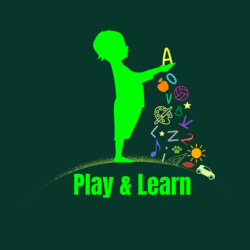Erasmus +
Play & Learn
Finish: 31 10 2022
Sub-Programme: English Language Learning in kindergarten through play – Play & Learn

The European Commission support for the production of this publication does not constitute an endorsement of the contents which reflects the views only of the authors, and the Commission cannot be held responsible for any use which may be made of the information contained therein.
Description
English Language Learning in kindergarten through play – Play & Learn
Project no: KA220-SCH-A06F1906
According to British Council, second language learning is a valuable tool that we should arm children with. As such, it should be continually improved so they can better communicate with others as they progress from playtime activities to more diverse learning concepts and situations. As educators of these young minds, adults have the responsibility to nourish and nurture them in every way possible, including learning through a variety of fun and entertaining methods. Thus, it is crucial for educators of young children have access to appropriate play based educational material and tools. Unfortunately, preschoolers and kindergarten are taught English language in most EU countries in the same way as (young children of primary, secondary school or adults), with little opportunity for creativity, actual language use, and with little enjoyment for most (Nuktong 2010; Panthumasen 2017).
Many children become bored and demotivated and start to view English as an object of study only. One possible remedy, certainly with younger learners, is to create excitement and enjoyment through the use of play. Play-based learning has been used for decades in early childhood teaching around the world and there is a large body of literature to show its benefits (Dau 1999; Landreth 2002). However, play- based learning has not been used much in the language classroom, despite its obvious potential. In addition to helping children’s general cognitive and social development, play also has an important role in the development of L1 language skills.
The main aim of the project Play & Learn is to establish the use of play and games in class & on learners’ development in early language learning and to promote the professional development of educational staff (knowledge and skills) within bilingual education from an early age.
Project’s objectives are:
a. to enable the educators understand and adjust accordingly the English Language Learning as a second language with an age-appropriate way and with a play-based methodology;
b. to equip the educators with the appropriate material in order to deliver courses on English language learning in early age of education
c. For children, to use English effectively for any purpose across from a really young age and familiarize themselves with the curriculum of primary schools;
d. to develop children’s interest in and appreciation of language learning; Specifically, the project will enable the educators teaching children to use the pooled knowledge, expertise and experience of formal and informal teaching of our programme participants.
The Play & Learn project will revolve around the production of 4 innovative results:
R1. A booklet of good practices
R2. Educational Material for Educators
R3. Toolkit for educators and schools
R4. Online learning platform and networking
Objectives
Project’s objectives are:
a. to enable the educators understand and adjust accordingly the English Language Learning as a second language with an age-appropriate way and with a play-based methodology;
b. to equip the educators with the appropriate material in order to deliver courses on English language learning in early age of education
c. For children, to use English effectively for any purpose across from a really young age and familiarize themselves with the curriculum of primary schools;
d. to develop children’s interest in and appreciation of language learning; Specifically, the project will enable the educators teaching children to use the pooled knowledge, expertise and experience of formal and informal teaching of our programme participants.
The Play & Learn project will revolve around the production of 4 innovative results:
R1. A booklet of good practices
R2. Educational Material for Educators
R3. Toolkit for educators and schools
R4. Online learning platform and networking


